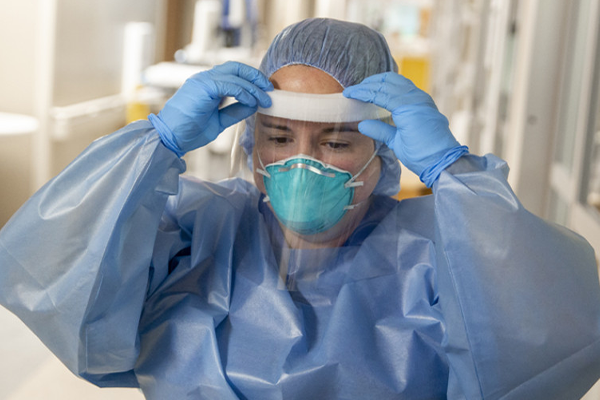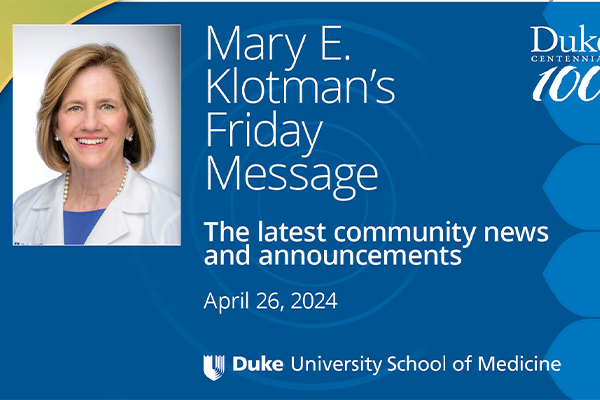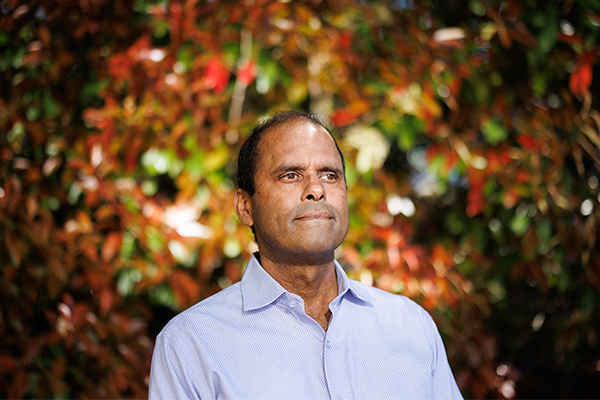Traveling Mural Symbolizes Connection within Duke’s Asian American and Pacific Islander Community
May is Asian American and Pacific Islander Heritage Month.
Staff Spotlight: Cathy Lefebvre Enjoys Helping People Achieve their Goals
Cathy Lefebvre, a program coordinator in the Division of Child and Family Mental Health & Community Psychiatry, supports the psychiatry clerkship program for medical students and the Psychiatry & Behavioral Sciences Grand Rounds series. She's worked in the department for 28 years, with a total of 31 years of service at the School of Medicine to date.
Luo and Tan Elected to AAP
Xunrong Luo, MD, PhD and Patrick Tan, MD, PhD were honored with election to the Association of American Physicians (AAP) for 2024.
COVID-19 Pandemic Alters View that Doctors are Obligated to Provide Care
The unique circumstances arising from the COVID-19 pandemic altered a long-held convention that doctors provide care regardless of personal risk.
EDI Spotlight: Tammara Watts, MD, PhD
Tammara Watts, MD, PhD, is the associate director of the Office of Equity, Diversity, and Inclusion at the Duke Cancer Institute. She is charged with strategic planning and implementation of the DCI’s Plan to Enhance Diversity (PED).
Climate Change and Health
Health experts at Duke University School of Medicine are scrutinizing the myriad ways in which shifting environmental conditions, from sweltering temperatures to severe storms, shape our well-being.
Eroglu Elected to American Academy of Arts & Sciences
Cagla Eroglu, PhD, Chancellor’s Distinguished Professor of Cell Biology and Neurobiology in the School of Medicine, is one of two Duke University faculty elected to the American Academy of Arts & Sciences for 2024.
Gift Gives Sarcoma Care and Research A Big Lift
A family has made a $1 million gift to create two $500,000 endowments to support sarcoma patient care and research at Duke.
Duke Graduate Students Awarded Prestigious NSF Fellowships
Graduate students at Duke University School of Medicine have been honored by the National Science Foundation Graduate Research Fellowship Program









